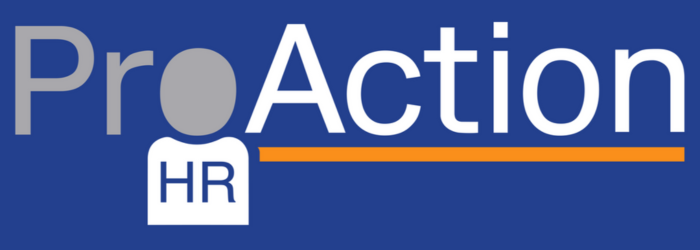Non-Profit HR Strategies: A Guide to Empowering Your Workforce
As a business leader or HR professional, understanding the unique needs of non-profit employees and volunteers is crucial to enhancing workforce effectiveness and achieving organisational goals. Martin Nicholson have created a trusted guide, offering insights into effective HR strategies tailored for non-profits, from fostering an inclusive culture to optimising volunteer management. By implementing these strategies, you can unlock the full potential of your team, ensuring that your efforts are both sustainable and impactful.
Executive Summary
Navigating human resources in the non-profit sector presents a unique blend of challenges and opportunities. Unlike the corporate world, non-profits often operate with limited budgets, small teams, and a reliance on volunteers—making effective HR practices not just important, but essential. These organisations must find innovative ways to attract, retain, and develop talent while staying true to their mission and values.
The heart of non-profit HR lies in building a workforce that is both mission-driven and well-supported. Employees and volunteers alike need to feel connected to the cause, valued for their contributions, and given opportunities to grow. This requires thoughtful strategies around recruitment, retention, training, and culture—each tailored to the realities of the non-profit environment. Creating a sense of purpose and belonging is just as important as offering competitive benefits or structured development plans.
In this article as we explore the core elements of non-profit HR strategy, we’ll look at how aligning people practices with organizational goals can drive impact, improve efficiency, and foster a strong, inclusive culture. From leveraging technology to measuring HR effectiveness, these strategies are designed to help non-profit leaders make the most of their resources while empowering their teams to thrive.
Navigating HR in the non-profit sector requires balancing limited resources with the need to attract, retain, and support a mission-driven team. This guide outlines key strategies for building an effective, motivated, and sustainable workforce.
…..
Let's explore how you can empower your organisation and elevate your HR practices to new heights.
Common HR Issues in Non-Profits
Non-profits often grapple with limited resources, which can lead to understaffing and overworked employees. This strain can result in burnout and high turnover rates, creating a cycle of constant recruitment and training.
Another common issue is the struggle to offer competitive compensation packages. Non-profits will find it difficult to attract top talent when competing with for-profit companies that can offer higher salaries and more comprehensive benefits.
Volunteer management also presents unique challenges. Balancing the needs of paid staff with those of volunteers requires careful coordination and clear communication to ensure everyone irrespective of role, feels valued and motivated.
Impact of HR on Mission Success
Effective HR practices are crucial for non-profits to achieve their goals and make a lasting impact. When HR strategies align with the organisation's mission, it creates a powerful synergy that drives success.
A well-managed workforce translates to more efficient operations, allowing non-profits to allocate more resources directly to their cause. This efficiency can lead to increased donor confidence and potentially more funding opportunities.
Moreover, when employees and volunteers feel supported and valued, they become passionate advocates for the organisation's mission. This enthusiasm can be contagious, inspiring others to contribute and furthering the non-profit's reach and impact.
Building an Effective Non-Profit Workforce
Creating a strong team is essential for non-profits to achieve their goals. Let's look at strategies for recruiting and retaining top talent in the non-profit sector.
Recruitment Strategies for Non-Profits
Non-profits can attract talented individuals by emphasizing their mission and the opportunity to make a meaningful impact. This appeal to purpose can be a powerful motivator for many job seekers.
Leveraging networks and partnerships can be an effective recruitment tool. Collaborate with universities, professional associations, and other non-profits to tap into a pool of mission-driven candidates.
Consider offering flexible work arrangements or professional development opportunities to compensate for potentially lower salaries. These benefits can be attractive to candidates seeking work-life balance or career growth.
Retention Tactics that Work
Retention in non-profits often hinges on creating a sense of purpose and belonging. Regular communication about the organisation's impact can help employees feel connected to the mission.
Providing opportunities for professional growth and skill development can increase job satisfaction and loyalty. This could include mentorship programs, cross-functional projects, or supported attendance at relevant conferences.
Recognition programs that highlight employee contributions can boost morale and retention. Consider both formal awards and informal acknowledgments to show appreciation for your team's hard work and dedication.
Developing Talent in Non-Profits
Investing in employee development is crucial for non-profits to build a skilled and motivated workforce. Let's explore effective strategies for nurturing talent within your organisation.
Training Programs for Employee Growth
Effective training programs are essential for employee growth and organisational success. Start by identifying skill gaps and aligning training initiatives with both individual career goals and organisational needs.
Consider implementing a mix of learning formats:
In-house workshops led by experienced staff members
Online courses for flexible, self-paced learning
External seminars or conferences for industry-specific knowledge
Experts brought into your organisation specifically for your talent
Encourage a culture of continuous learning by setting aside dedicated time for professional development and recognizing employees who actively pursue growth opportunities.
Mentorship and Coaching Benefits
Mentorship and coaching programs can significantly enhance employee development and satisfaction. These relationships provide personalized guidance, support, and knowledge transfer.
Benefits of mentorship and coaching include:
Accelerated skill development
Improved job performance
Enhanced employee engagement and retention
Strengthened organisational culture
To implement an effective program, clearly define goals, match mentors and mentees based on skills and personality, and provide ongoing support and resources for both parties.
Creating a Positive Organisational Culture
A strong organisational culture is the foundation for success in non-profits. It shapes how employees and volunteers interact, make decisions, and pursue the organization's mission.
Importance of Values and Mission Alignment
Aligning organisational values with the mission is crucial for creating a cohesive and motivated workforce. When employees understand and believe in the organisation's purpose, they're more likely to be engaged and committed to their work.
To foster this alignment:
Clearly communicate the organisation's mission and values during the onboarding process
Regularly reinforce these principles through team meetings and internal communications
Recognise and celebrate behaviours that exemplify the organization's values
Encourage employees to share how their work contributes to the mission, creating a sense of purpose and connection across the organization.
Fostering Diversity and Inclusion
Creating a diverse and inclusive workplace is not just ethical—it's essential for non-profit success. A diverse team brings a wider range of perspectives, leading to more innovative solutions and better representation of the communities served.
To promote diversity and inclusion:
Implement unbiased hiring practices
Provide diversity and inclusion training for all staff
Create employee resource groups to support underrepresented communities
Ensure diverse representation in leadership positions
Regularly assess your organization's diversity efforts and seek feedback from employees to continually improve your inclusive practices.
Implementing Efficient HR Processes
Streamlined HR processes are crucial for non-profits to maximize their limited resources and focus on their mission. Let's explore ways to enhance HR efficiency.
Streamlining HR Operations
Efficient HR operations can significantly reduce administrative burden and free up time for strategic initiatives. Start by auditing your current processes to identify bottlenecks.
Consider implementing these streamlining tactics:
Standardise and document HR procedures for consistency
Automate routine tasks like leave requests and timesheet approvals
Centralise employee information in a secure, easily accessible system
Implement self-service options for common HR transactions
Regularly review and update your processes to ensure they remain efficient and aligned with organisational needs.
Leveraging Technology for HR Solutions
Technology can be a game-changer for non-profit HR management. The right tools can automate tasks, improve data accuracy, and provide valuable insights for decision-making.
Key areas where technology can enhance HR operations include:
Applicant tracking systems for streamlined recruitment www.hireful.co.uk a free first year for charities!
Learning management systems for employee training and development
Performance management software for goal-setting and reviews
Analytics tools for workforce planning and reporting
When selecting HR technology, prioritise user-friendliness, integration capabilities, and scalability to ensure long-term value for your organization.
Measuring HR Success in Non-Profits
Evaluating the effectiveness of HR initiatives is crucial for continuous improvement and demonstrating value to stakeholders. Let's explore key metrics and feedback mechanisms.
Key Performance Indicators to Track
Identifying and monitoring relevant KPIs can provide valuable insights into the impact of your HR strategies. Consider tracking a mix of quantitative and qualitative metrics to get a comprehensive view of HR performance.
Some important KPIs for any organisation but particularly for non-profit HR include:
Employee Retention Rate: Percentage of employees who remain with the organization over a specific period
Volunteer Engagement: Measure of volunteer satisfaction and commitment to the organization
Training Effectiveness: Impact of learning programs on employee performance and skill development
Diversity Metrics: Representation of diverse groups across different levels of the organization
Time-to-Hire: Average time taken to fill open positions
Regularly review these metrics and adjust your HR strategies accordingly to drive continuous improvement.
Using Feedback for Continuous Improvement
Gathering and acting on feedback is essential for refining HR practices and ensuring they meet the needs of your workforce. Implement a multi-faceted approach to collecting feedback:
Conduct regular employee satisfaction surveys
Hold focus groups to dive deeper into specific issues
Encourage open communication through suggestion boxes or anonymous feedback channels
Perform exit interviews to understand reasons for employee departures
Use the insights gained from this feedback to inform HR decision-making and drive positive changes in your organization. Remember to communicate back to employees about how their feedback is being used to foster a culture of transparency and continuous improvement.
What can we do for you? - please get in touch for a FREE discovery call.
Martin Nicholson is the Managing Consultant at ProAction HR, providing Human Resources Services to SME businesses in Southampton, Winchester and throughout Hampshire and the adjoining counties.
Co-founder of the Winchester-based HR company, Martin and his team support clients across Hampshire and neighbouring counties, providing HR advice, HR consultancy, and HR services. They cover a broad range of HR solutions, from one-off responsive HR support to a full Human Resources service, along with Learning & Development, Training and Change Management
“Helping organisations to thrive on the value & uniqueness of their people.”



